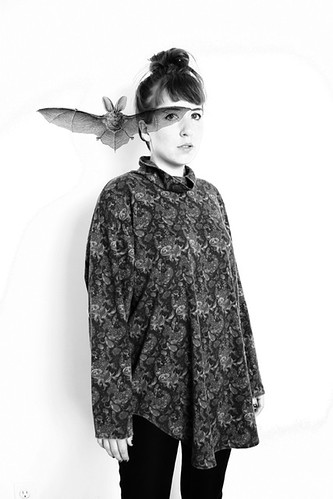On the verge of their
first headline tour in two years, the release of their third album and moving
to the UK, ANDY HAZEL finds Adam
Montgomery and Haydn Ing of CALLING ALL
CARS pretty damn excited.
After several years of solid touring and becoming regular features in
both the Top 50 charts and on Triple J, rock trio Calling All Cars has been
mysteriously quiet since 2011. Despite a 2012 tour with Kingswood, and several
secret shows under the name Werewolves, the band explain their absence as both
by design and accident. A year off to write and record soon turned into three.
“It was down to a lot of things,” explains singer and guitarist Haydn
Ing, sitting in a cafe in Melbourne's inner north. “Record labels, who we were going to get to produce and record with. We
had a lot of options and we wanted to try something different, but we’re always
thinking about international as well.”
“That was the whole focus,” adds bassist Adam Montgomery. “We wanted a
label where we were getting international support. We had to hang out for it a
bit longer but it worked out for the best. We’re moving to the UK at the start
of May, as soon as this tour finishes,” he says happily. “We don’t really know
where yet, the label wants us to go to London, but we’re thinking maybe
Manchester; it’s better for touring. We thought it’s stupid not to go, we’re a rock and roll band.
We’re just going to pack up, take our guitars and see how we go.”
Signing to Cooking Vinyl, a label with a base in London and an office in
Australia seems like an ideal move for a band with one of the best honed live
shows in the country and who are keen to break new ground. With new album Raise the People about to be released,
the timing couldn’t be better. Not named for political or zombie-related reasons,
the album instead serves to remind audiences what the band does best; move
people.
“Big Day Out this year was really interesting,” explains Ing. “Everyone
was like this,” he frowns and crosses his arms.
“There was a lot of indifference,” adds Montgomery. “When high energy bands
like Grouplove or The Hives came on, they got the place moving and it was so
cool to see that.”
Renown for their blazing live shows and relentless touring schedule, Calling
All Cars have not only played to tens of thousands of AC/DC, Foo Fighters and Queens
Of The Stone Age fans, but bring the same energy to all-ages shows in country
towns, as they’re planning to do on their typically thorough forthcoming
national tour.
“Country towns don’t get bands through as much, so they tend to get more
involved,” muses Montgomery.
“But it doesn’t matter where you are,” continues Ing, “it’s down to the
band playing a good show. Big Day Out ten years ago, bands that got the opportunity
to be on the main stage really went all out; they’d spend money on backdrops, looking
good and play for their lives. Now…I don’t know…” he trails off. “A lot of the
bands we saw were really lazy, there seems to be a theme going on,” he laughs.
“It’s a lot of lazy bedroom techno,” adds Montgomery adding to the laughter.
Though sonically different from previous releases, the Raise the People maintains focus on tempos
and rhythms. “It’s always better not to think about the live thing, and just
focus on making a good song,” explains Ing, a statement perhaps more attuned to
a ‘lazy bedroom techno’ artist than a kicking three-piece.
Demos for the album, as for the band’s previous two, was recorded with
friend Tom Larkin. Chasing further challenges, and resisting complacency, the
band aimed high, with legendary producer Tchad Blake (The Black Keys, Phantom
Planet) on the top of their list. Busy with recording a time-rich,
better-financed major label band, the trio waited before choosing to go with
local producer Steve Schram (San Cisco, Eagle And The Worm, Little Red). “I’ve
always been a massive fan of big pop hooks,” says Ing, explaining the curious
choice. “When his name came up we said ‘sweet’. We hit it off straight away, we
wanted to push ourselves and he wanted to push us even further.”
“We wanted to do
something weird,” agrees Montgomery. “He’s a bizarre guy to work with, doesn’t
give a fuck about the process of recording as such, it’s all about vibing.” Schram, who turned out to be friends with
Blake, passed the album on, the big man’s advice: ‘don’t rerecord’. “He dug it,
he said it was an eclectic album,” says Ing. “So maybe 60% of the album is the
original demos we recorded in Tom’s studio live.”
“After we finished the demo we cut things up and moved
things around and that’s more the production he [Schram] did. They came
together a bit more as a cohesive thing after we spent time with him,” adds
Montgomery.
The first taste of this collaboration, Werewolves (a song Ing describes as being about “a night of really
intense sex”), and its suitably NSFW video has divided fans, a reaction that
didn’t come as a surprise to the band. “We’re not surprised,” laughs
Montgomery. “But there’s no pressure. We’re just excited to finally play it
live.”



